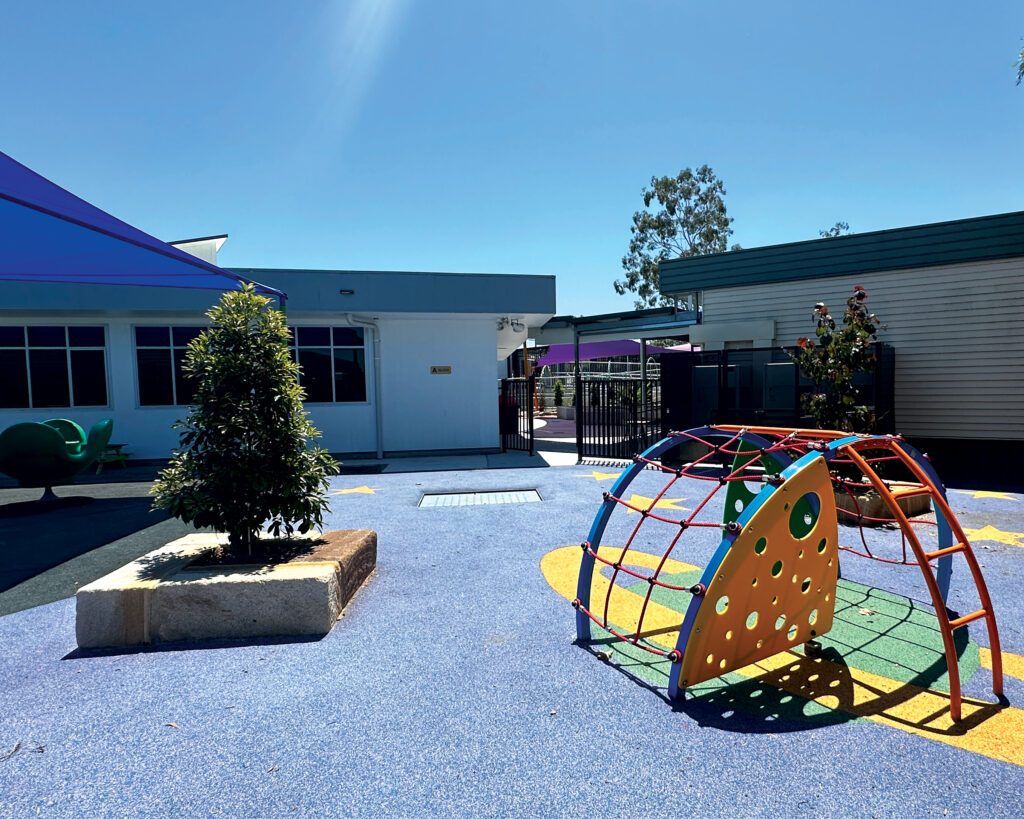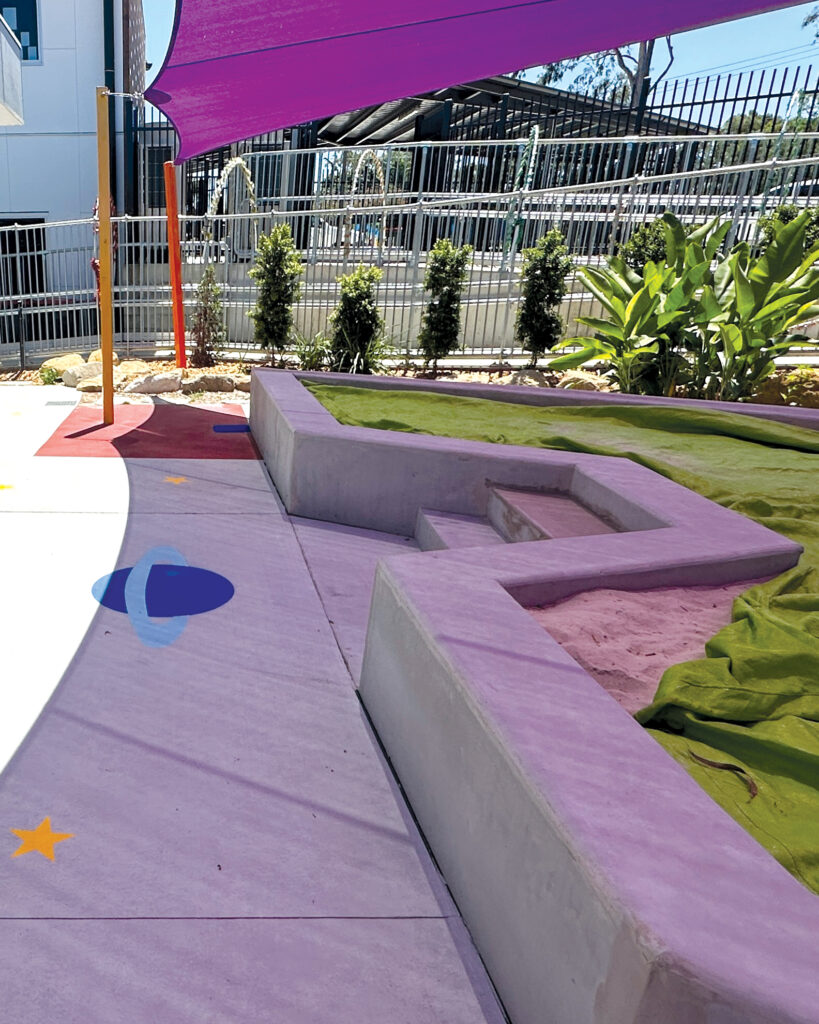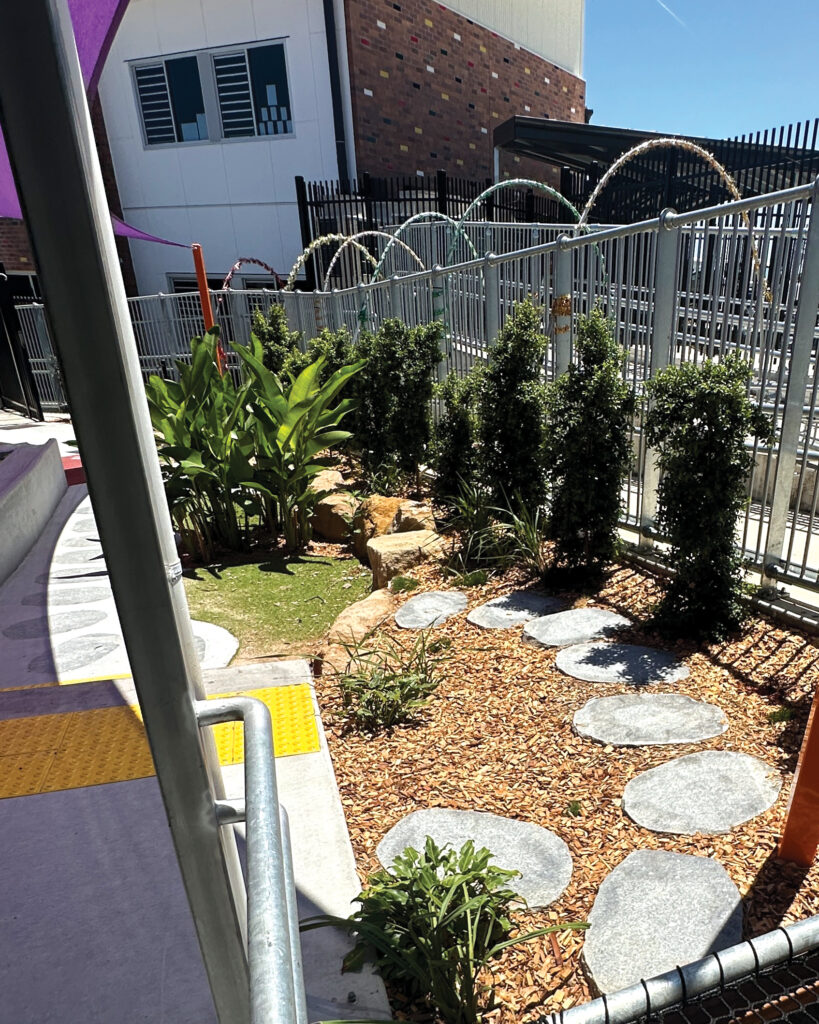Orterra: Designing Inclusive Playspaces, Beyond Physical Accessibility
Play is an essential part of childhood, supporting physical, social, and cognitive development. However, not all children experience play equally. Traditional playgrounds often prioritise physical activity without considering the diverse needs of children with disabilities, sensory sensitivities, or behavioural challenges. True inclusion means designing playspaces that cater to all children, ensuring that no one is left out.

High schools are full of classrooms, hallways, and sports fields, but there’s often nowhere just to be – to move, unwind, or connect without the pressure of competition. Research shows that play is just as valuable for teenagers as it is for little kids, yet most schools don’t offer spaces designed for it. It’s time to change that.
Beyond Physical Disabilities
While accessibility standards often focus on mobility challenges, inclusive play spaces must go further. Many children experience invisible disabilities, including autism, ADHD, sensory processing disorders, and anxiety. Designing for these needs ensures that children who struggle with overstimulation, social interactions, or behavioural regulation can still engage meaningfully in play.
Sensory-friendly design elements, such as quiet zones, textured areas, and gentle movement-based equipment (like nest swings or gliding play structures), help children self-regulate. Offering choices—active and quiet play areas—allows children to engage at their own pace.

Supporting Behavioural and Emotional Needs
Some children may have difficulty navigating social play due to anxiety, trauma, or neurodiversity. Playgrounds should provide opportunities for different types of interaction, from collaborative play to solitary reflection. Small nooks, shaded seating, and nature-inspired elements offer calm retreat spaces where children can regroup without leaving the play area entirely.
Clear signage and structured play elements (such as interactive panels or step-by-step climbing structures) help children who benefit from predictability and routine. Additionally, playground layouts should promote safety, minimising overwhelming sensory input and creating logical movement flows that reduce frustration and conflict.
Gender-Inclusive Play Opportunities
Playgrounds have historically favoured high-energy, physically demanding activities, often leading to gendered play dynamics where boys dominate active zones while girls may feel sidelined. Ensuring inclusive play means designing spaces that encourage diverse types of engagement.
Providing a mix of physical, creative, and social play elements—such as loose parts and dry creek bed, potions making, storytelling areas, and group swings—ensures all children can find ways to participate. Encouraging non-competitive, open-ended play structures (rather than sport-focused areas) also helps break down gender barriers and fosters cooperative interactions.

Designing for Universal Inclusion
A well-designed play space incorporates:
- Multi-sensory elements: Varying textures, interactive sound and visual features, and adaptable equipment cater to different sensory needs.
- Flexible play zones: Areas for high-energy play, quiet retreat spaces, and social engagement accommodate different personalities and abilities.
- Accessible pathways and surfaces: Smooth transitions between spaces allow children with mobility challenges to navigate freely.
- Social and imaginative play areas: Spaces that encourage role-play, storytelling, or creative exploration ensure a variety of engagement styles.
- Seating and gathering spots: Comfortable, shaded seating allows caregivers to supervise easily while fostering inclusive social interactions.
Conclusion
Inclusive play spaces are not just about physical access; they create environments where every child, regardless of ability or background, can experience joy, challenge, and connection. By designing with a broader understanding of disability, sensory needs, and social inclusion, we can ensure that playgrounds become truly welcoming spaces for all. Investing in inclusive play is an investment in a more equitable and connected future for our communities.
0422 243 815

